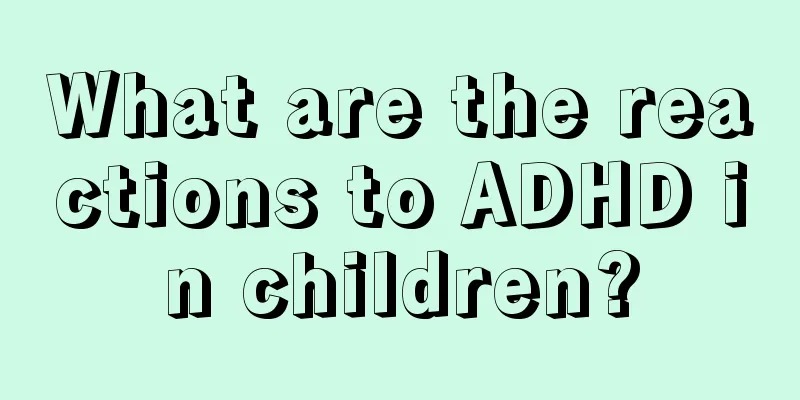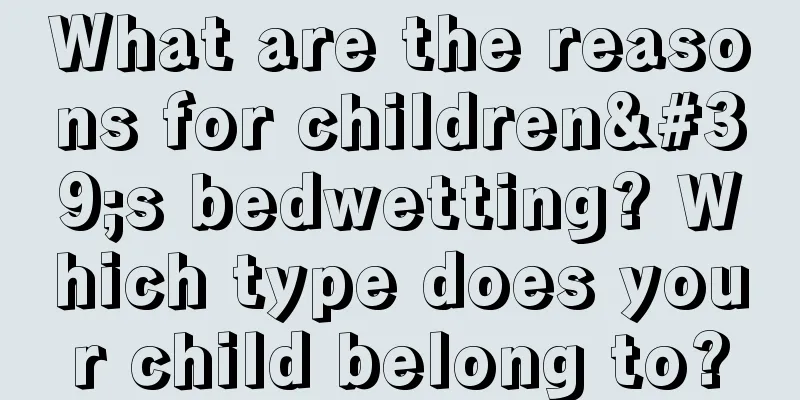How to answer embarrassing questions children often ask

|
Every newborn baby is like a blank piece of paper, knowing nothing and being able to do nothing. But as the children grow up and gradually develop their own thoughts, they become so grateful and curious about everything around them. In order to explore the "secrets", they will ask their parents all kinds of surprising questions from time to time. Faced with questions that parents find difficult to answer or don’t know how to answer, many parents choose to avoid them. Such as topics about gender, birth, aging, sickness and death, and the private lives of adults, etc. Parents want to give the most appropriate answers to their children's difficult questions. Why don't girls have penises? Of all the issues that make parents hesitate, the one that obviously comes to the forefront is "sex". The reason why parents are at a loss is that they can't find the right words to describe it - they usually find it difficult to talk about it! To impart sexual knowledge to children in a way that they can understand, parents are required to use accurate and tactful words. Too literal explanations may be detrimental to children. Letting children directly face a secret that is suddenly revealed deprives them of the necessary space for their own subjective understanding of things. Also, because the vocabulary contains certain erotic elements, adults' own sexual fantasies may be instilled into children, stealing the possibility for children to fantasize about it themselves. Therefore, the words adults use should be "appropriate", allowing children to understand but not too detailed and clear, so that children can continue to form their own opinions and cognition. For people to grow, they need to go through the process of understanding things at their own pace. Adults will instinctively feel that when answering children's questions, they should not indoctrinate, but should respect children's subjective cognitive rights. Adults don’t want to see the embarrassing moments of their childhood repeated. How do you explain it? To what extent? It is difficult for parents to find the most appropriate way of saying it, so they vacillate between two extremes: on the one hand, scientific explanations are used to discuss with children the differences and functions of specific organs. This approach makes adults feel that the topic is far from mysterious. On the other hand, parents use obscure and even somewhat erotic descriptions of details, or naturally and generously use themselves as examples - but this method is still indoctrination. Answering questions about sex is indeed difficult: children's little eyes have long noticed the adults' panic and anxiety - the adults analyze the situation to themselves, while the children fall into silence - this is exactly what the parents themselves experienced when they were young. This may make it difficult for children to talk about sex when they grow up. For parents, their children's questions often bring up scars or unpleasant experiences that they themselves are not aware of. Therefore, when faced with the question from their sons, "Why don't girls have a penis?" some mothers are speechless, as if they really don't know the answer. Later, they realized that the questions asked by the children made them go back in time. They were suddenly stripped of their adult costumes and became the little girl who could not get answers from adults and was troubled by the mystery alone. Mom, am I going to die too? Questions about death, like those about sex, are difficult to answer. Telling a child that death exists is like telling him or her that everyone will die. You will die, and those you love will die too. Talking about death is never easy for anyone. Nowadays, it is not easy to avoid talking about death with children. It is very likely that one day, a child will see a crushed beetle on a country road. It is also very likely that a child will see and hear about death on TV or in other people’s discussions, and suddenly have a concept of death. The child will ask: “Why is this beetle not moving?” The reason why adults find it difficult to answer questions about death is not just because they are afraid of scaring children, but more for personal reasons. Death has too heavy a meaning in the subconscious. For each of us, death is a metaphor or a symbol - it means loss and abandonment, but it also reflects another issue that needs to be considered: one's own position (status, identity). The way each person copes with death differs depending on their understanding of death. This understanding of death is often passed down from generation to generation. For some people, death is unbearable, it means absolute nothingness, because it is synonymous with "nothing exists anymore." Others grow up seeing and accepting death as a part of life—perhaps in nature, seeing the birth of fruit bring about the death of flowers; in human life, they also see similar inheritance and continuity. How did they learn this? Through conversations with their brothers and sisters, especially from childhood, from grandparents to mom and dad, from mom and dad to themselves, seeing the inheritance from generation to generation, everyone accepting and changing their position so that others can take over their role. Teaching children that death is part of a "normal" order allows them to give death a more "human" understanding, rather than a synonym for "absence." Why did mom and dad get divorced? Another type of question that stumps most parents is children's questions about adults' private lives. At this point, the real difficulty lies in: to what extent should we answer? How to stop? Should we simply not answer? Adults can also be troubled by questions about family events, such as divorce. When a child asks, "Why don't you want to live together anymore?" should the parents explain to the child in detail the ins and outs of the divorce and who is right and who is wrong? Sometimes, after a child kisses his mother on the cheek, the child will ask, "Mom, don't you kiss Dad?" For such questions, parents are afraid that a straightforward answer will disappoint the child, and they are also worried about letting the child get involved in things that have nothing to do with them. In fact, there is a simple principle - the child should be told things that concern him, but that's all. You can tell your children that their parents are divorcing because they don't get along well enough and can no longer be "husband and wife", but there is no need to tell your children the details, especially about private grudges and what happens in the bedroom. Similarly, when it comes to "sex", children also have the right to know that "sex exists", what sexual organs are made up of, and that their parents also have sexual organs. However, children do not need to see or know the details of sexual life, as these have nothing to do with them. But many parents find it difficult to grasp this balance - it is actually based on the differences between generations and the prohibition of incest. Perhaps, when these parents were children, their parents did not tell them that the private lives of their elders were off-limits. Another possibility is that their parents fail to respect their children's personal space. When it is their turn to become parents themselves, they don’t know where to draw the line between themselves and their children. Why do I have to go to bed earlier than you? Many parents also find it difficult to cope when their children question the authority of adults. Why are mom and dad always giving orders? You can watch TV until late, why can’t I? And so on. When adults are questioned and challenged, they may even waver: Seriously, what right do I have to make demands on my children? To impose these on my children? Many parents have experienced the abuse of power by their elders. In fact, the standards for dealing with this kind of problem are quite simple in theory. You need to realize that other parents would do the same thing as you in the same situation, so this is not an abuse of power, you are just doing your job as a parent. You can explain to your children that this is a universal rule. Children actually understand it. The reason they question it is just to see whether their parents’ attitude is tough. There is no ideal answer Children's problems put parents through a severe test. The influence of their own childhood experiences is everywhere - they have to deal with problems alone, always think there is an ideal answer, are afraid to let their children go the way they have gone, and are afraid to let their children know their own ignorance... This does not include those wrong concerns: "The child is too young, it's too early to tell him/her these!" It is important to overcome your own embarrassment and have the courage to answer children's questions. On the one hand, when you answer your child's questions, you can make the child feel that he/she is a complete conversation partner and that you respect him/her, which is crucial for him/her to establish his/her own personality and build self-confidence in the future. On the other hand, even if the child cannot fully understand your answer at the time, you have given the child the "right to know", that is, the right to explore and the right to continue asking questions - the child becomes wise because of this. When children ask questions, parents can always answer them, and when children need help, they will also take the initiative to communicate with their parents. Lying is the worst answer Parents are always worried that the answers they should give to their children may hurt their children's young hearts, so they often lie to their children. For example, the death of grandparents was explained as "going on a trip". Parents should know that although the truth may be painful for their children, it is not a bad thing for them if they can experience grief with help and companionship. Children have the right to know about the death of a loved one, share the family's grief, attend funerals, etc. They always become more sensible and stronger after these events because they have a real status and identity in the family. A child who is blinded by lies will be in danger. Subconsciously, he/she can feel that people are hiding the truth from him/her, which means that he/she has no right to know - they will no longer trust adults. |
<<: Four major contradictions hidden in intergenerational education
>>: Follow the 6 principles of early childhood education to cultivate perfect children
Recommend
What is Mycoplasma respiratory infection?
Mycoplasma respiratory tract infection is a commo...
Is it better to use diapers or diapers?
In recent years, the frequency of diaper use has ...
Red patch on the back of baby's neck
The baby's skin is very delicate and it is ea...
Is it good for children to drink yogurt every day?
There is a common phenomenon now. As parents, we ...
What causes acne on newborn babies' faces?
Newborn babies are very fragile and deserve our p...
What should I do if my baby has a runny nose for a month?
The baby's every move affects the mother'...
Nine-year-old girl's breasts develop on one side
When a child's breasts develop, usually both ...
Precautions for full moon vaccination
When a one-month-old baby gets vaccinated, it is ...
How to treat febrile seizures in children?
For children, some diseases are still very common...
How to quickly relieve itching of baby eczema
Eczema is a skin disease caused by multiple facto...
How to guide children away from the mentality of comparison
Some people explain the comparison and extravagan...
What are the recipes for children with diarrhea?
Children may have diarrhea because they have eate...
What to do if the baby has a nick in the heart
As we grow up, we will always encounter various d...
Why do children's ears get hot?
Why do children's ears get hot? Is this a que...
Will drinking honey generally cause boys to mature early?
Honey is a very nutritious food. Many female frie...









